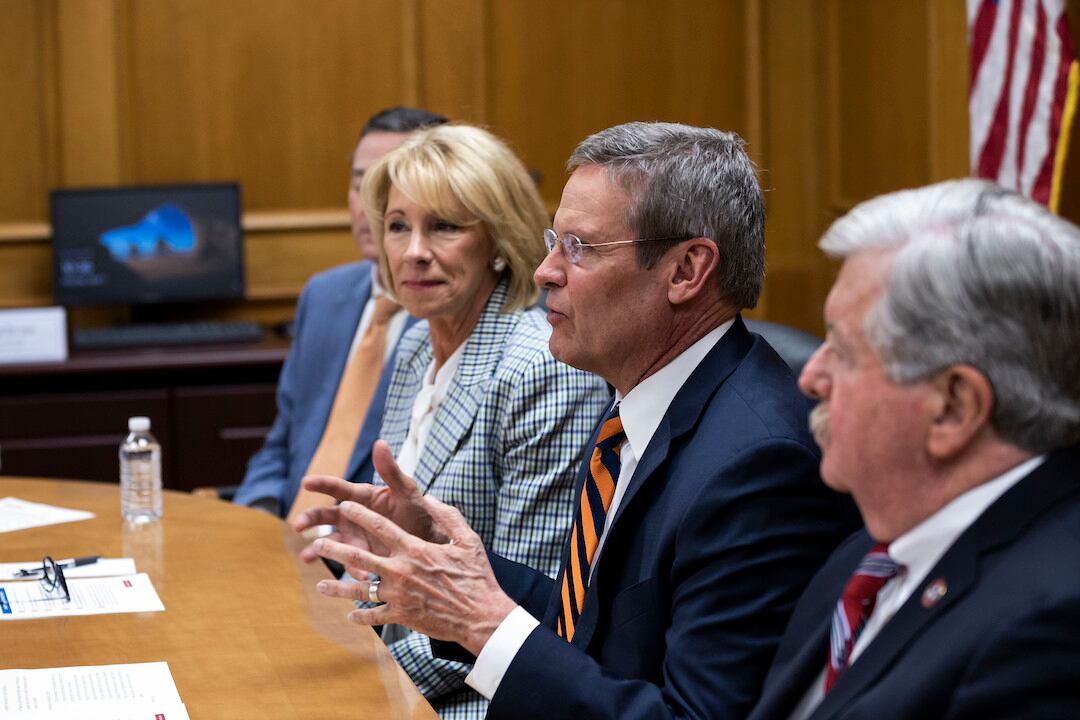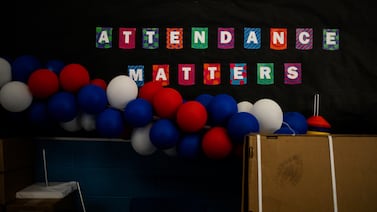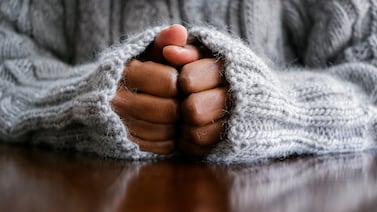May is a critical month for a two-part effort by conservative groups to dismantle Michigan’s 50-year-old prohibition on public funds going to private schools.
Part one is a ballot initiative that would give Michigan residents a tax break if they contributed to scholarships for private school tuition. Supporters must collect 340,000 signatures on petitions by June 1 for that proposal to have a chance at becoming law.
Part two is a federal lawsuit that challenges Michigan’s prohibition on public funding for private schools as a violation of the U.S. Constitution. A decision in the case, Hile v. Michigan, is expected in the next few weeks, though an appeal is likely.
Both efforts are linked to long-running efforts by former U.S. Education Secretary Betsy DeVos to direct public funds to private schools.
The ballot initiative would chip away at a strict separation of public and private education in Michigan. The lawsuit would smash the firewall entirely.
Together, the two efforts represent one front in a political battle to define how Michigan education policy should change in response to the pandemic.
DeVos and her allies say the pandemic showed the need for more school choice, noting that many students struggled with online learning during public school shutdowns, while many private schools continued in-person instruction.
The petition “is crafted in a way that really meets the moment for COVID education, providing families the ability to use a variety of education options,” said Ben DeGrow, director of education policy for the Mackinac Center for Public Policy, a conservative think tank that DeVos has supported.
Opponents say these policies would cut into public school enrollment and funding at a time when schools need additional help to manage the social and emotional fallout from the pandemic. They say that efforts to shift public funds to private schools are part of efforts by activists such as DeVos to undermine public education — efforts that originated long before the pandemic.
“Their intent is to eliminate public education as we know it,” said Casandra Ulbrich, president of the Michigan Board of Education and a leader of a coalition opposing the ballot initiative.
A challenge to Michigan’s constitution
Michigan’s constitution contains an unusually broad prohibition on public dollars going to private schools. The clause dates to 1970, when voters amended the state constitution after a heated debate.
Similar provisions in other states have been struck down recently by the federal courts on the grounds that they discriminate on the basis of religion. But the language in Michigan’s constitution remains in effect. Unlike many states, Michigan banned funding for all private schools, not just religious schools, making its constitution less vulnerable to claims of religious discrimination.
Michigan private schools receive some indirect public support. For example, they can enroll their students part time in public schools for classes that they don’t offer, at taxpayer expense. After a lengthy court fight, private schools in the state also won the right to draw state funding to comply with state health and safety regulations, an amount that reached $1 million this year.
DeVos has long aimed to expand taxpayer support for private schools. Along with her husband, Dick DeVos, she was a key backer of a 2000 ballot proposal that would have created a voucher system in Michigan, allowing students to apply their share of public school funding to private school tuition. The proposal was roundly defeated at the polls.
Now she’s backing the current ballot initiative to give tax breaks for contributions to private-school scholarships, which critics say is effectively a voucher program. Once the ballot initiative gathers enough signatures, supporters plan to take advantage of a provision in state law that allows them to put their plan to a vote in the GOP-led legislature, bypassing voters and Gov. Gretchen Whitmer’s likely veto.
This time, the main obstacle for the proposal is not voters but the 1970 amendment to the Michigan Constitution.
That’s where the lawsuit comes in.
The lead plaintiffs, Jill and Joseph Hile, are Kalamazoo parents of school-aged children who say they should be allowed to use funds from their Michigan Education Savings Plan account — a tax-favored account used for college or K-12 expenses — to cover tuition to a private, religious school. Their suit, filed in U.S. District Court in southwest Michigan, takes direct aim at the 1970 amendment.
The Hiles argue that Michigan’s prohibition of public funding for private schools violates the First Amendment to the U.S. Constitution, which protects freedom of religion and speech, and the 14th Amendment, which guarantees equal protection for all citizens under the law.
The plaintiffs claim that the 1970 amendment was motivated by anti-Catholic animus, and that denying funding to private religious schools amounts to religious discrimination.
The state has asked Judge Robert Jonker to dismiss the case, and he is expected to issue a ruling in coming weeks. If he agrees, his decision would likely be appealed all the way to the Supreme Court, a process that could take several years, said Patrick Wright, vice president for legal affairs at the Mackinac Center, who is representing the Hile family.
The ballot issue, on the other hand, would likely be resolved well before then — even if it is challenged in state court as a violation of Michigan’s constitution.
Some predict the petition would surmount such a challenge, because the tax credits DeVos and her allies are pushing for involve individual contributions to private scholarship funds: If individuals are paying for the scholarships, they argue, does that really count as public funding for private schools?
But even Wright says that such an argument could be a tough sell in state court given the strict and explicit language in the current Michigan Constitution:
“People … challenging the ballot initiative would do well in court,” he said.
Overriding Michigan’s constitution
This is why the federal lawsuit is such an integral component of DeVos and her allies’ long-term plan to provide public support to private schools.
Suppose the tax credit plan for scholarships secured 340,000 signatures and was voted into law by state legislators, but the Michigan Supreme Court struck it down as a violation of the state constitution. The tax breaks would remain on the books, but would not take effect.
If, years later, the U.S. Supreme Court knocked down Michigan’s prohibition on public funding for private schools — the legal obstacle to the tax credit plan — then the credits for scholarships could take effect.
The situation has a parallel in the abortion fight now raging in Michigan, Wright said. Michigan has a 1931 ban on abortion on the books that could go into effect if the Supreme Court overturns Roe v. Wade, the 1973 ruling that recognized a right to an abortion.
Both the scholarship tax credits and the abortion ban will likely be hotly contested.
“There would be all kinds of lawyerly stuff to be going on,” Wright said, “but in the long run, the federal Constitution trumps the state constitution.”
That means Hile v. Michigan could ultimately pave the way for the scholarship tax credits — and more policies like it that would direct taxpayer dollars to private schools.
Koby Levin is a reporter for Chalkbeat Detroit covering K-12 schools and early childhood education. Contact Koby at klevin@chalkbeat.org.





